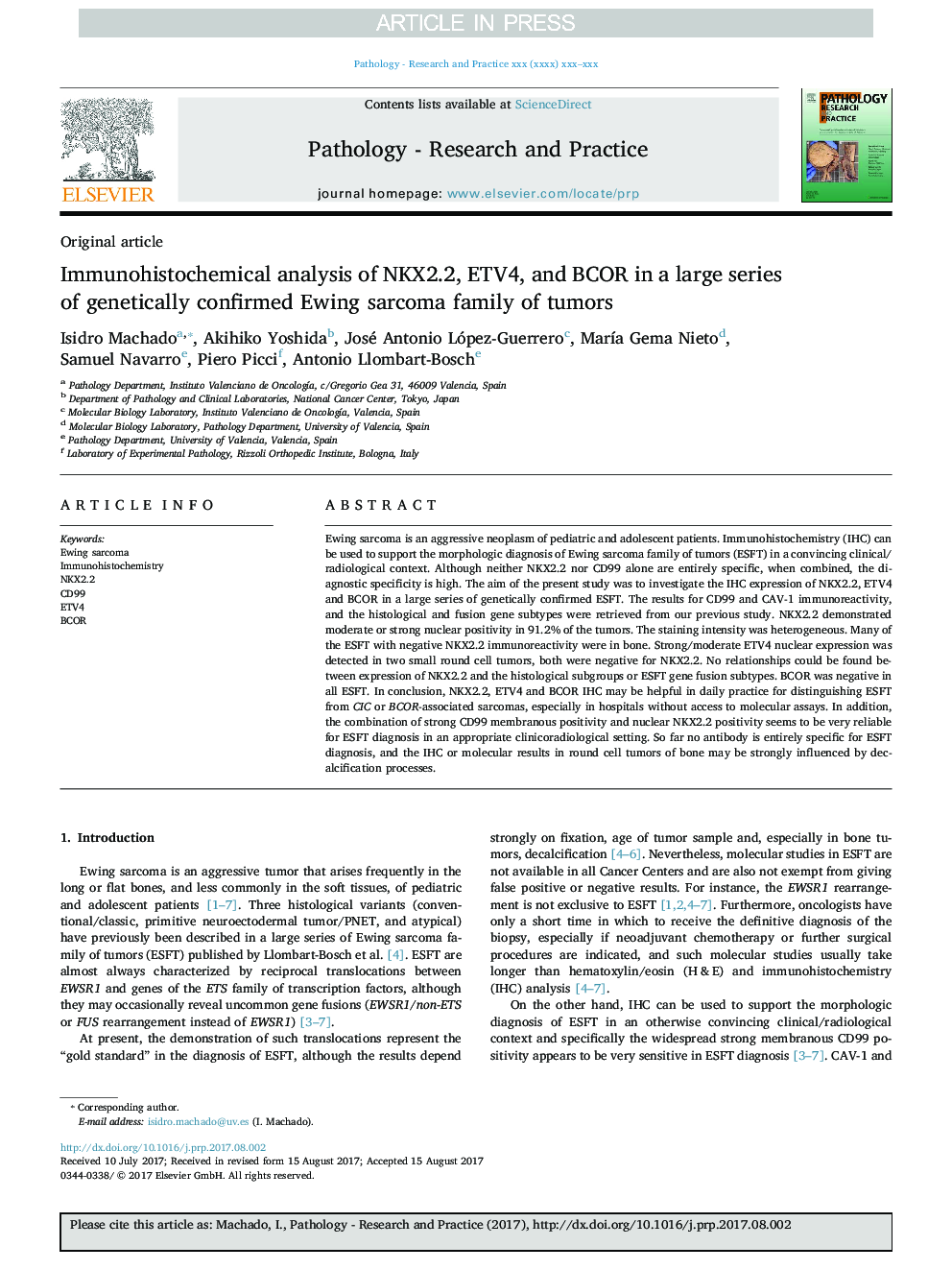| کد مقاله | کد نشریه | سال انتشار | مقاله انگلیسی | نسخه تمام متن |
|---|---|---|---|---|
| 8458478 | 1548873 | 2017 | 6 صفحه PDF | دانلود رایگان |
عنوان انگلیسی مقاله ISI
Immunohistochemical analysis of NKX2.2, ETV4, and BCOR in a large series of genetically confirmed Ewing sarcoma family of tumors
دانلود مقاله + سفارش ترجمه
دانلود مقاله ISI انگلیسی
رایگان برای ایرانیان
موضوعات مرتبط
علوم زیستی و بیوفناوری
بیوشیمی، ژنتیک و زیست شناسی مولکولی
تحقیقات سرطان
پیش نمایش صفحه اول مقاله

چکیده انگلیسی
Ewing sarcoma is an aggressive neoplasm of pediatric and adolescent patients. Immunohistochemistry (IHC) can be used to support the morphologic diagnosis of Ewing sarcoma family of tumors (ESFT) in a convincing clinical/radiological context. Although neither NKX2.2 nor CD99 alone are entirely specific, when combined, the diagnostic specificity is high. The aim of the present study was to investigate the IHC expression of NKX2.2, ETV4 and BCOR in a large series of genetically confirmed ESFT. The results for CD99 and CAV-1 immunoreactivity, and the histological and fusion gene subtypes were retrieved from our previous study. NKX2.2 demonstrated moderate or strong nuclear positivity in 91.2% of the tumors. The staining intensity was heterogeneous. Many of the ESFT with negative NKX2.2 immunoreactivity were in bone. Strong/moderate ETV4 nuclear expression was detected in two small round cell tumors, both were negative for NKX2.2. No relationships could be found between expression of NKX2.2 and the histological subgroups or ESFT gene fusion subtypes. BCOR was negative in all ESFT. In conclusion, NKX2.2, ETV4 and BCOR IHC may be helpful in daily practice for distinguishing ESFT from CIC or BCOR-associated sarcomas, especially in hospitals without access to molecular assays. In addition, the combination of strong CD99 membranous positivity and nuclear NKX2.2 positivity seems to be very reliable for ESFT diagnosis in an appropriate clinicoradiological setting. So far no antibody is entirely specific for ESFT diagnosis, and the IHC or molecular results in round cell tumors of bone may be strongly influenced by decalcification processes.
ناشر
Database: Elsevier - ScienceDirect (ساینس دایرکت)
Journal: Pathology - Research and Practice - Volume 213, Issue 9, September 2017, Pages 1048-1053
Journal: Pathology - Research and Practice - Volume 213, Issue 9, September 2017, Pages 1048-1053
نویسندگان
Isidro Machado, Akihiko Yoshida, José Antonio López-Guerrero, MarÃa Gema Nieto, Samuel Navarro, Piero Picci, Antonio Llombart-Bosch,